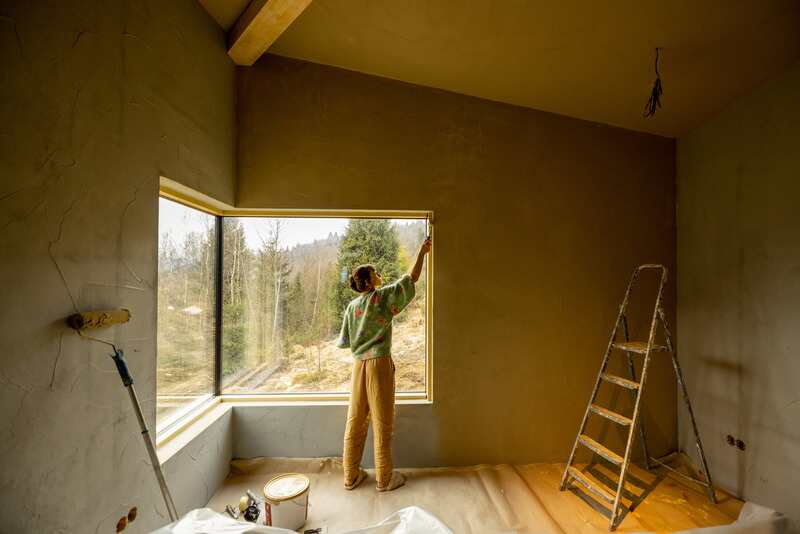How To Start a Small Business at Home: Step-By-Step Guide
What if your weekend DIY projects were a full-time gig? Imagine swapping your office cubicle for a toolbelt and your coffee breaks for client consultations.
Starting a home renovation business can turn your passion for transforming living spaces into a rewarding career. It’s a field where creativity meets practicality, and your skills can make a real difference in people’s day-to-day lives.
Here’s how to start a home renovation business step by step. Learn how to write a business plan, land your first clients, and grow at just the right pace.
RELATED ARTICLE — How Much Does It Cost To Start a Business? A Comprehensive Guide
What To Consider Before Starting a Home Renovation Business
Before you dive into the world of home renovation, take the time to think about these important factors:
Skills
Do you have the know-how to tackle a range of renovation tasks? You need a mix of hands-on home repair abilities. These include carpentry, house painting, home improvement, and general handyman skills. You’ll also want to hone your project management skills.
It’s also important to understand the unique requirements of different types of spaces. For example, bathroom remodeling and kitchen remodeling require different approaches, even if some skill sets overlap.
If you’re not an expert at everything just yet, that’s okay. You can always team up with other pros or take a few courses to learn important skills.
Insurance
Don’t forget about different types of contractor insurance. General liability insurance, for example, protects you and your clients if something goes wrong. Some types may be mandatory in your area of operation, so do your research.
Equipment
Think about the tools you need for your projects. Basic items like hammers and drills are a must, but you might also need more heavy-duty gear like ladders and power tools. Start with the essentials and add to them as your business grows.
Profit Margin
How much can you make? It all depends on what you charge. Balance your costs (like materials and labor) with what homeowners are willing to pay. Research prices in your area to make sure you can earn enough to keep your business running and growing.
RELATED ARTICLE — 10 Business Expense Categories You Need To Consider
Step-By-Step Guide to Starting a Home Remodeling Business

Here’s how to get your business off the ground in just seven steps:
1. Draft a Solid Business Plan
Your business plan is like a roadmap for your company. It should outline your services, who your ideal customers are, and how you’ll make money. Include details about your startup costs, pricing strategy, and financial projections.
Don’t forget to research the competition and explain how you’ll stand out. Incorporate these details to explain your marketing strategy and growth goals.
Remember, a good business plan isn’t set in stone. It should be flexible enough to change as your business grows and evolves.
2. Pick a Name and Get Registered
Choose a name that’s catchy and lets people know what you do at a glance. Make sure it’s not already taken. Search online and check with your local business registry just to be safe.
Once you’ve picked a name, register it with your state or local government. This makes your business official and protects your brand.
3. Choose a Business Structure
Decide how to structure your business legally. A sole proprietorship is the simplest option, but it doesn’t protect your personal assets. Partnerships split ownership between two or more people. Limited liability companies (LLCs) offer personal asset protection and tax benefits but more paperwork.
Each option has its pros and cons, so consider talking to a professional to find the best fit for your situation. If you’re operating by yourself, a sole proprietorship is likely the best way to go.
4. Secure Necessary Permits and Licenses
Find out which permits and licenses you need from your local government. These might include a general business license, contractor’s license, or specific permits for electrical or plumbing work.
Don’t skip this step. Working without proper licenses can lead to fines or legal trouble. Check with your city or county office for the exact requirements in your area.
5. Nail Down Business Logistics and Resources
Set up the practical aspects of your business, including:
- Opening a business bank account to keep your personal and business finances separate
- Looking into business insurance to protect yourself from accidents or mistakes
- Deciding whether you need to hire employees or subcontractors
- Creating systems for scheduling jobs, managing inventory, and keeping track of your finances
6. Define Your Remodeling Business Brand
Your brand is more than just your logo. It’s the overall impression people have of your business. Think about what makes your company unique. Maybe it’s your attention to detail, eco-friendly practices, or speedy service.
Use these qualities to create a consistent look and feel across all marketing materials. This helps potential customers remember you and understand what you stand for.
7. Market Your Business
Get the word out about your new business. Start with a user-friendly website that shows off your best work. Social media is a great way to market yourself and share before-and-after photos and helpful tips. Consider offering a discount for first-time customers to get people to try your services.
Don’t forget about traditional methods like leaving flyers at local hardware stores or joining your chamber of commerce. Word-of-mouth is powerful in this industry, so always aim to exceed clients’ expectations.
RELATED ARTICLE — What Is a Service Business?
8 Mistakes To Avoid When Starting a Home Renovation Business

You know the basics of what to do when starting a new home renovation business, but what about things to avoid? Here are some of the most common mistakes to watch out for:
1. Starting With Too Little Cash
Not having enough money to cover startup costs and early expenses can sink your new business before it has a chance to grow. Make sure you have enough saved to cover at least six months of expenses. This includes not just business costs, but also your personal living expenses.
2. Underestimating the Competition
Failing to research and understand your competitors can leave you struggling to attract customers and set solid prices. Take time to study other home renovation companies in your area. Look at their services, prices, and what customers say about them to find ways to make your business stand out.
3. Lacking a Solid Business Plan
Without a clear roadmap for your business, you might make poor decisions or miss important opportunities for growth. A good business plan helps you set goals, plan finances, and think through potential challenges. It’s also a crucial document if you need to get a loan or attract investors.
4. Ignoring Customer Satisfaction
Failing to prioritize your clients’ happiness can lead to bad reviews and a damaged reputation. These are hard to recover from in the renovation industry. Always aim to exceed your customers’ expectations. To improve your services, regularly ask for feedback and act on it.
5. Doing Everything Yourself
Trying to handle every aspect of your business alone can lead to burnout. It can also prevent you from focusing on the tasks that really need your expertise.
Don’t be afraid to delegate or hire help when needed. This might mean bringing on employees or partnering with other professionals like general contractors for specialized work.
6. Setting the Wrong Price
Charging too little can leave you struggling to make a profit, while charging too much might scare away potential customers. Research market rates in your area and calculate your costs carefully. Remember to factor in overhead expenses and your desired profit margin when setting prices.
7. Poor Project Management
Mismanaging your renovation projects can result in unhappy clients and financial losses. Use project management tools to keep track of timelines, budgets, and tasks. And clear communication with both your team and your clients is key to staying on track.
8. Focusing On Rapid Growth Too Early
Expanding your business too quickly without a solid foundation can lead to quality issues and financial strain. Instead of trying to grow too fast, too soon, focus on building a strong reputation and a stable client base. Gradual, sustainable growth often works out better in the long run.
RELATED ARTICLE — How To Become an Independent Contractor: A Complete Guide
Start a Home Renovation Business With Joist
Starting a home renovation business isn’t easy, but it can be a rewarding path for the right person. It takes hard work, planning, and a solid set of skills. If you’re willing to put in the effort, self-employment has huge rewards.
The key is using tools that always have your back, like Joist. Once you’ve got your business off the ground, streamline your operations with Joist’s contractor-ready app. Save time, win more jobs, and get paid faster with quicker remodeling estimates, professional invoices, and payment tracking.